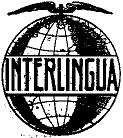
Interlingua is an international auxiliary language (IAL) developed between 1937 and 1951 by the American International Auxiliary Language Association (IALA). It is a constructed language of the "naturalistic" variety, whose vocabulary, grammar, and other characteristics are derived from natural languages. Interlingua literature maintains that (written) Interlingua is comprehensible to the hundreds of millions of people who speak Romance languages, though it is actively spoken by only a few hundred.
Pipe(s), PIPE(S) or piping may refer to:
IA, Ia, or ia may refer to:

Latino sine flexione ("Latin without inflections"), Interlingua de Academia pro Interlingua (IL de ApI) or Peano's Interlingua (abbreviated as IL), is an international auxiliary language compiled by the Academia pro Interlingua under the chairmanship of the Italian mathematician Giuseppe Peano (1858–1932) from 1887 until 1914. It's a simplified version of Latin, and retains its vocabulary. Interlingua-IL was published in the journal Revue de Mathématiques in an article of 1903 entitled De Latino Sine Flexione, Lingua Auxiliare Internationale (meaning On Latin Without Inflection, International Auxiliary Language), which explained the reason for its creation. The article argued that other auxiliary languages were unnecessary, since Latin was already established as the world's international language. The article was written in classical Latin, but it gradually dropped its inflections until there were none.
Idiom Neutral is an international auxiliary language, published in 1902 by the International Academy of the Universal Language under the leadership of Waldemar Rosenberger, a St. Petersburg engineer.
Interlingua is an auxiliary language developed by the International Auxiliary Language Association.
Esperanto and Interlingua are two planned languages with different approaches to the problem of providing an International auxiliary language (IAL). Esperanto has many more speakers; the number of speakers is c. 100,000-2,000,000. On the other hand, the number of speakers is c. 1,500 for Interlingua, but speakers of the language claim to be able to communicate easily with the c. 1 billion speakers of Romance languages, whereas Esperanto speakers can only communicate among each other.
The British Interlingua Society, established in 1956, works in Great Britain and the English-speaking world to promote the knowledge and active use of Interlingua, the international language. Among the publications of the BIS is the transatlantic magazine "Lingua e Vita", with articles in English and Interlingua. It has appeared since 1965, and previously as the "Littera Circular" or Circular Letter. A second BIS publication is "Contacto". Founded in 1994, this magazine provides articles and regular features about Interlingua and the organization. Contacto is written in English and in parallel Interlingua-English texts.
Lingua e Vita is the official magazine of the British Interlingua Society (BIS). Founded in 1965 as an initiative of Brian C. Sexton, Lingua e Vita is a continuation of the earlier organ of the BIS, the Circular Letter.
The Circular Letter was an early Interlingua newsletter published from 1954 to 1965, when it was expanded and renamed Lingua e Vita. D. M. Hallowes, who became the Secretary of the British Interlingua Society (BIS), edited the publication. Issue 9, dated March 1956, printed a suggestion that a British Interlingua organization be formed:
"Mr. (N.) Divall has suggested the time has now come when the friends of Interlingua in the British Isles are numerous enough that they should form a society similar to those possessed by the movements for Interlingue (Occidental) and Ido...This announcement can be regarded as sufficient to create it."
An interlanguage is an emerging language system in the mind of a second language learner.
André Schild : born in Fontainemelon or Cernier in the Swiss canton of Neuchâtel. He was a linguist and former administrator of the Universal Esperanto Association in Geneva, and the director of the Oficie por li lingue international auxiliari Occidental in the 1940s in Basel. He taught at the Benedict School (Bénédict-Schule) in Basel. He published the outline of his Neolatino system in 1947.
Tomin or Tomyn is a Slavic surname. It may refer to
This page is based on this
Wikipedia article Text is available under the
CC BY-SA 4.0 license; additional terms may apply.
Images, videos and audio are available under their respective licenses.

